Independence of Asian Countries
by Devender
0 2700
Most countries of Asia and Africa emerged independent after the end of the Second World War. Mainly the colonial powers were not ready to give up their hold on the colonies but they left when they couldn't hold their rule anymore.
During the period of war, many Imperialist countries lost their rule over their colonies but when war was over, they tried to take control of these colonies again and they even succeeded for some time but eventually failed to do so.
The independence of these countries was primarily because of the struggle of the people of the colonies but the environment after the Second world war also helped their struggles. The economies of many Imperialist countries had suffered from war and thus, imperialism lost its grip over the world.
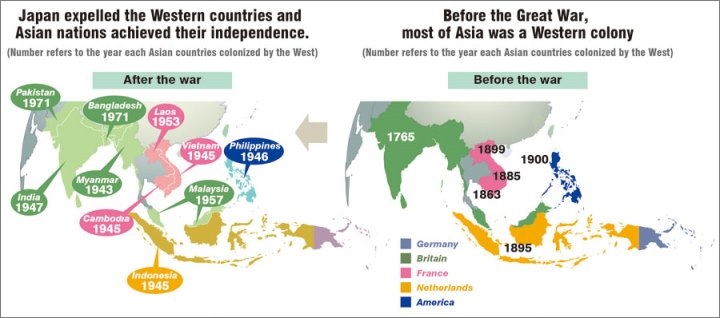
- Even the forces which were in favor of the people of colonies inside the imperialist countries also grew powerful.
- The main aims of the second world war were Freedom and Democracy. The whole war against fascism was to get freedom from fascist aggression and restore world peace so, it can no longer be confined only to Europe.
- The emergence of the Soviet Union and other communist countries was also a major factor in ending imperialism.
- These countries provided aid to every country's struggle for freedom.
- The cause of getting independence of colonies gain popularity at all forums especially at the United Nations (UN).
- Everybody was turning against Imperialism by that time.
- Unity of freedom movements in various countries also played a major role in their struggles for independence.
The freedom movement in one country also supported the freedom movement of other country and the countries which already got freedom also played an important role in this struggle. These countries supported the struggle of peoples who were still in colonies at international forums and the UN.
Independence of Asian Countries
- India:
- Burma:
- Indonesia:
- China:
- Civil War of China:
- Sri Lanka:
- Thailand:
- Philippines:
- Malaysia:
The independence of India was of great value in the history of freedom movements in Asia and Africa but it was divided into two different parts, India and Pakistan. The policies made by India under its first Prime Minister, Jawaharlal Nehru also helped in giving strength to freedom movements of other countries.
Burma also achieved independence from Britain within a few months after India. The antifascist People's Freedom league of Burma was formed in 1944 with an aim to resist the Japanese invasion and independence of Burma.
After world war II, Britishers tried to take over the rule of Burma back but the freedom movements intensified. Many leaders of the freedom movement were killed but still, Burma was able to force Britain to agree to the demands of freedom. Finally, on 4th January 1948, Burma became independent.
After the defeat of Japan in the Second World war, Sukarno who was one of the pioneers for the freedom movement of Indonesia claimed independence of Indonesia but soon British troops landed there to restore the colonial powers of the Dutch in Indonesia. The newly formed government resisted the attempts to turn Indonesia into a colony.
Demands from all over the world could be heard to stop the war that started in Indonesia and it was very intense in Asian countries. After the independence of India, it convened a conference of all Asian countries to put an end to the war in Indonesia.
This conference was held in Delhi in January 1949 and it demanded complete independence of Indonesia. The resistance of the people of Indonesia with the pressure from the world and Asian countries forced Holland to recognize Indonesia as an Independent country. Holland recognized the independence of Indonesia on 2nd November 1949.
Kuomintang and the Communist Party of China joined under the administration of Dr. Sun Yat-Sen for complete freedom and unification of China. This solidarity was broken after the passing of Sun Yat-Sen and a civil war began in China between the Kuomintang under the initiative of Chiang Kai-Shek and the Communist Party of China, whose most significant pioneer was Mao Zedong.
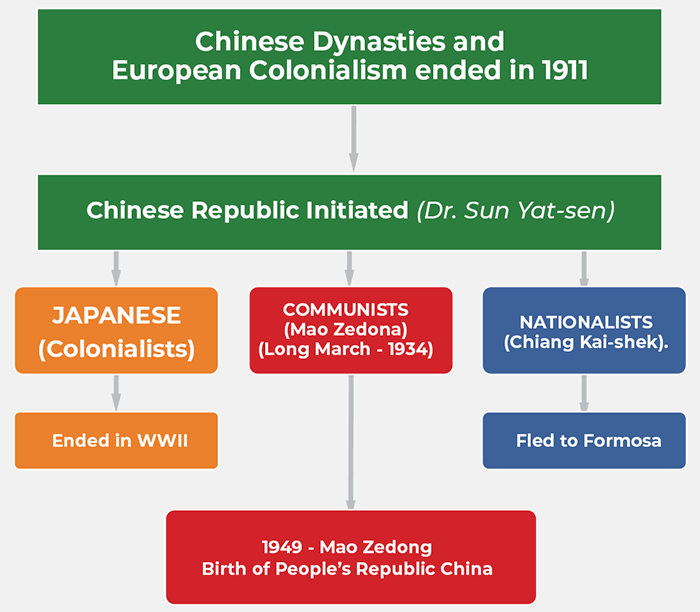
The Kuomintang became a party for the interests of capitalists and landlords whereas the communist party was made up of peasants and workers. In the areas under the communist party, the lands owned by landlords were taken away from them and distributed among peasants. Because of these kinds of policies, millions of people of China were towards the communist party side.
The Communist party gathered a huge army called the People's Liberation Army and after the defeat of Japan, Japanese forces got out of China. Soon, the Civil war again started.
The Kuomintang got massive aid from the US but its armies were completely routed. With little left troops, Chiang KaiShek went to Taiwan which was under the control of Japan since the China defeat in the war of 1895.
The people's Republic of China was proclaimed on 1st October 1949 and the communist party came to power in China. Now, the most populous country of the world was under the communist rule which shook the world.
Now, there were two major powers Soviet Union and China under communist rule. The Chinese revolution weakened Imperialism in Asia even more.
After a few months of Indian independence, Sri Lanka also got independence in February 1948.
Thailand was under the control of Japan and after the defeat of Japan in the Second world war, it became free.
Japan drove out American forces in the Philippines during the war and after the war, America agreed to the independence of the Philippines.
Britishers were able to re-establish their rule after world war in Malaysia and it only got freedom in 1957.

Share:

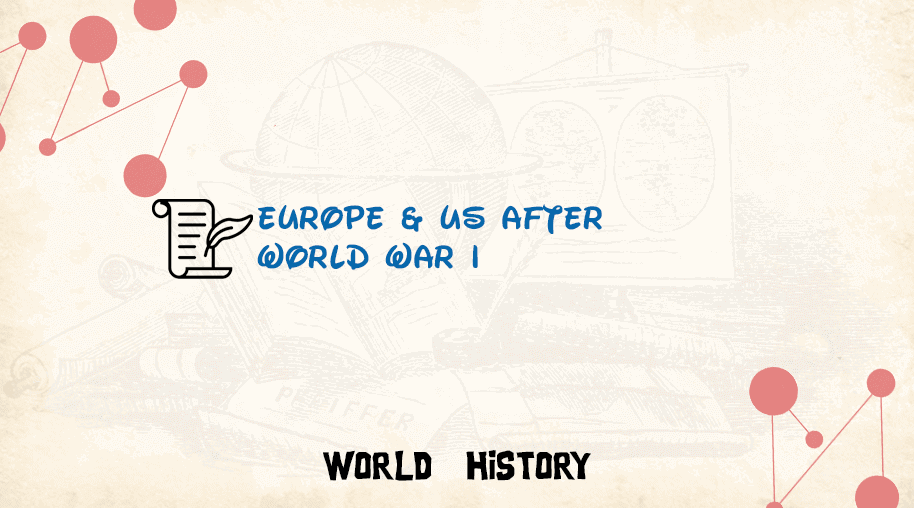

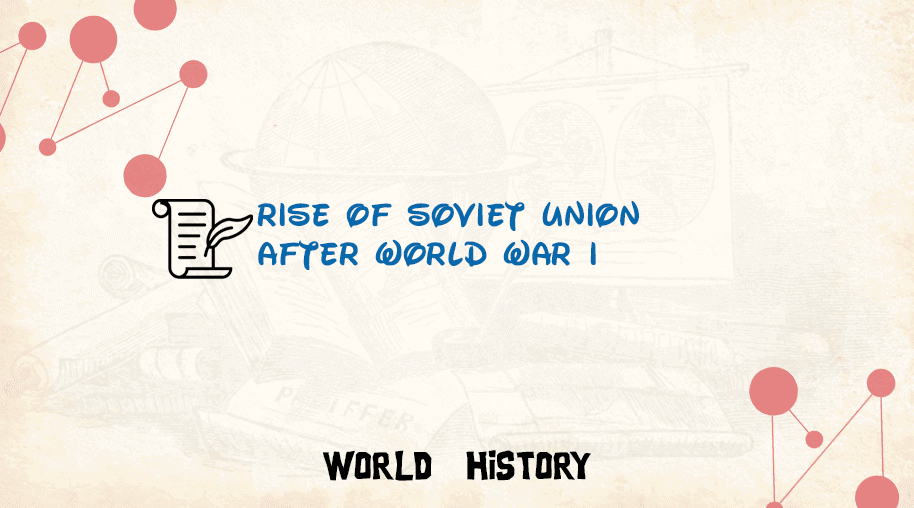
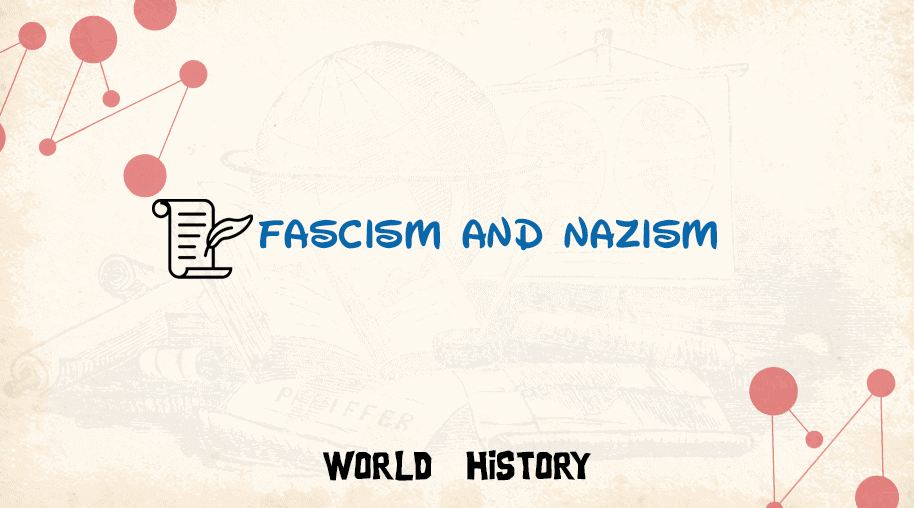


Comments
Waiting for your comments